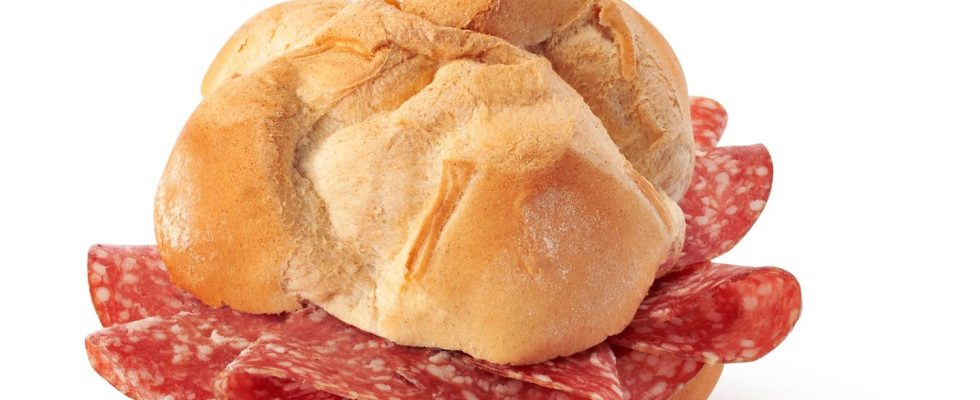Nutrition
Why smokers in particular should be careful when it comes to meat
A wheat roll with meatloaf? Yummy! But too much meat and sausage increases the risk of developing lung cancer. Smokers should be particularly careful about what they eat.
© Bernd Jürgens/ / Picture Alliance
The risk of developing lung cancer is particularly high for smokers. A new meta-study shows that diet also appears to have a certain influence on risk.
Italian fennel salami on a fresh roll? Splendid! Smoked ham? Yummy! A nice red steak straight from the pan? Wonderful! As tasty as sausage and meat can be for many people, it is unhealthy to eat all of it frequently. The World Cancer Agency classifies processed meat such as sausage or bacon as carcinogenic. Red meat is considered “probably carcinogenic.”
However, the experts rely on epidemiological studies that compare people who eat meat with those who don’t. It is noticeable that more people in the meat group suffer from different types of cancer such as colon cancer or breast cancer.
The problem with these studies: They don’t show that the meat itself is the cause. Maybe there are completely different factors. Passionate meat eaters are proven to eat less healthily than those who avoid sausage, roast meat or schnitzel or eat little of it.
Lung cancer: Diet also plays a role
This background should be kept in mind when looking at the results of a new meta-evaluation of twelve studies on this topic. Accordingly, smokers and former smokers in particular have an additional increased risk of developing lung cancer if they eat a lot of red meat and sausage. Smokers bear the greatest risk of lung cancer anyway, because smoking is and remains the most important risk factor for this disease. But the meta-study now shows that nutrition can also obviously play a role in lung cancer.
According to the “German Health Portal” website, two diets were considered for the meta-study: on the one hand, the typical “Western” diet (high proportion of processed and red meat, eggs, refined grains and sweets) and on the other hand, a healthy diet that includes a high proportion of vegetables , fruit, poultry, whole grain products and fish.
Result: The people who ate a significantly less healthy diet, as described in the first group, had a significantly increased risk of developing lung cancer. This primarily applies to smokers or people who have previously smoked.
Antioxidants could counteract inflammation
Is it directly due to higher meat consumption? This cannot be clearly proven due to the methodological difficulties already mentioned. The researchers suspect that the high proportion of antioxidants that comes with a healthy diet (vegetables!) counteract the inflammatory effects of smoking, which are crucial for the development of lung cancer. But of course, many other influences, such as genetic factors, also have an impact on the development of cancer. Above all, the study shows that smokers or former smokers should pay particular attention to what they eat – also with regard to their risk of lung cancer.




